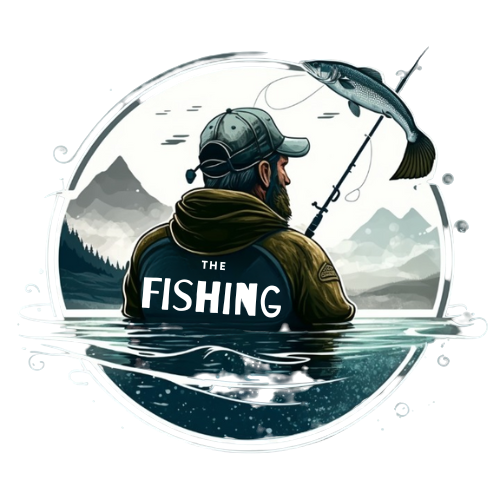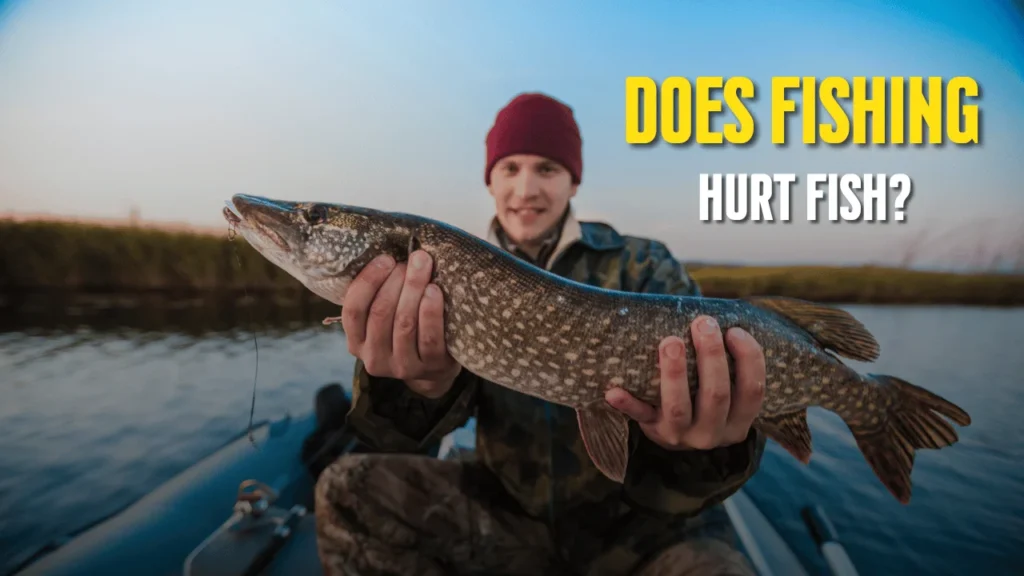
Fishing can cause harm and distress to fish during the catching and handling process. Fishing can cause physical injuries, stress, and even death to fish.
You should read: Does Fly Fishing Hurt Fish? (7 more Questions Answered!)
Fishing, a popular recreational activity enjoyed by millions worldwide, involves the catching and handling of fish. However, it is important to consider the impact that fishing has on the well-being of fish.
While some argue that fishing is a sustainable practice with minimal harm to fish populations, others believe that it can cause significant harm and distress to the aquatic creatures.
This contentious issue raises several questions: does fishing hurt fish? What are the potential consequences of this activity on fish populations?
In this article, I will explore the impact of fishing on fish and delve into the various factors that influence their survival.
Table of Contents
How Bad Does Fishing Hurt The Fish?
Fishing can harm fish both physically and mentally, causing them pain when they are hooked and suffocating when removed from water.
It can also negatively impact the environment through overfishing and habitat destruction. To lessen this harm, use barbless hooks, practice catch-and-release methods, and maintain proper water conditions when fishing.
While fishing may seem like a harmless sport, there is some debate about the impact it has on fish.
While fishing does have some impact on fish, responsible angling practices can significantly minimize harm and contribute to sustainable fishing.
By practicing catch and release methods, using proper handling techniques, and supporting conservation efforts, anglers can enjoy their sport while minimizing their impact on fish populations and aquatic ecosystems.
Catch And Release Method:
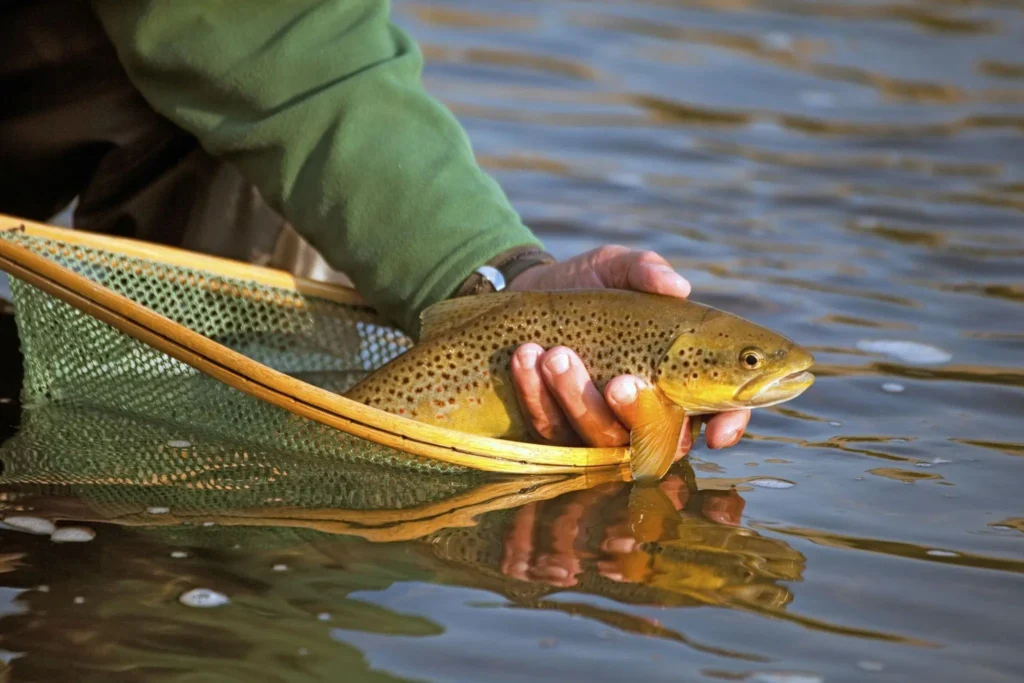
- Fish that are caught and returned to the water may experience some level of stress, but the overall impact is generally minimal.
- The catch and release method allows fish to be released back into their natural habitat, giving them a chance to survive and reproduce.
- Proper handling techniques, such as wetting hands before touching the fish and using barbless hooks, can reduce injury and increase the fish’s chances of survival.
You may also like to know: Does Catch and Release Hurt Fish? [Best Practices]
Injuries And Mortality:
- Despite efforts to minimize harm, fishing can still cause injuries and mortality to fish, especially if not done responsibly.
- Fish may suffer from hook injuries, internal damage, or exhaustion due to prolonged fights.
- Studies suggest that the mortality rate varies depending on factors such as hook type, angler experience, and handling practices.
Environmental Impact:
- Overfishing and unsustainable fishing practices can have a substantial impact on fish populations and marine ecosystems.
- Habitat destruction, bycatch (unintentional capture of non-target species), and the depletion of food sources can disrupt the delicate balance of aquatic ecosystems.
- Responsible fishing practices, such as adhering to fishing regulations and supporting sustainable fisheries, are essential to minimize the environmental impact of fishing.
Considerations For Ethical Angling:
- Anglers should prioritize ethical angling practices, respecting fish as living creatures and being mindful of their well-being.
- Applying proper techniques and equipment can help reduce harm and stress to fish during the fishing process.
- Understanding and following local fishing regulations and conservation guidelines is crucial to preserve fish populations and their habitats.
Do Fish Heal After Being Hooked?
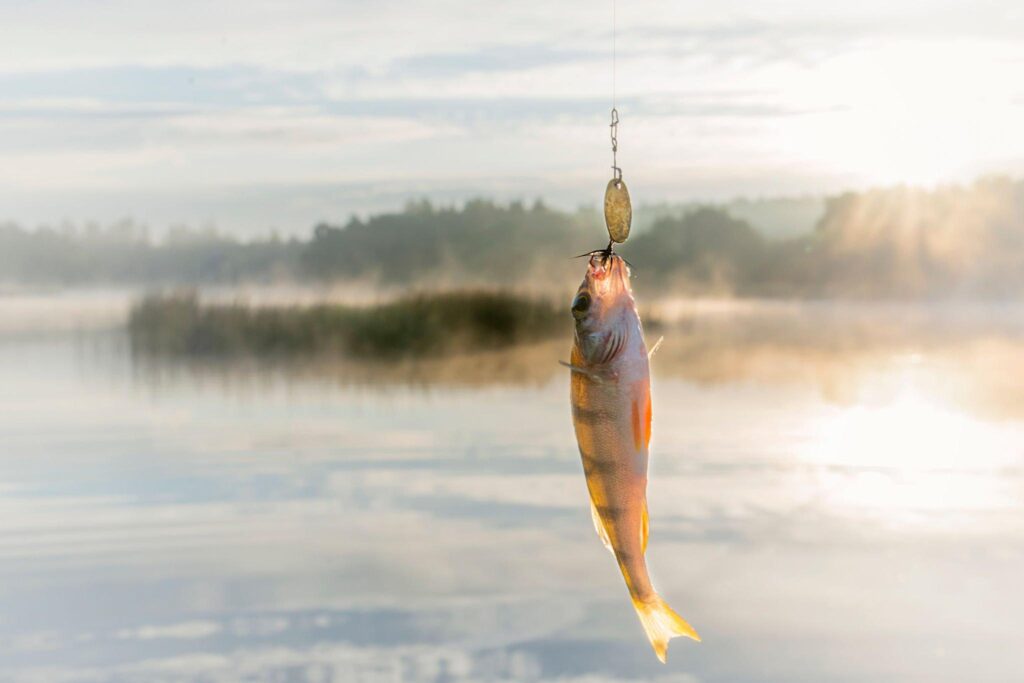
Yes, most fish, especially ‘Bony Fish,’ can heal from hook wounds. Healing depends on the injury’s severity and location.
You may also like to know: Do fish feel pain when they get hooked? Like humans do?
Careful hook removal is crucial to avoid additional damage. Despite their ability to heal, the stress and potential injuries from catch and release can negatively impact fish. Using barbless hooks and proper catch-and-release techniques can minimize harm.
Healing Process Of Fish:
Fish possess the ability to heal from injuries, including those caused by hooks. While the process varies depending on the severity of the injury and the species of fish, here are some key points to consider:
Is Fishing Considered Cruel?
Whether fishing is considered cruel is subject to varying perspectives.
Some, like The Minimalist Vegan and PETA, argue that fishing is immoral and unethical, causing undue stress and harm to fish.
On the other hand, viewpoints like those from Go Fishing Outdoors suggest that while there is a level of harm inflicted, the degree of cruelty can depend on the method of fishing.
Ultimately, the debate revolves around individual values and beliefs concerning fish sentience, ecological impacts, and the ethics of sport or commercial fishing.
Fishing is a complex topic, and opinions on its cruelty can vary greatly. Here are some key points to consider:
- Different perspectives: The perception of fishing depends on individual values and beliefs. Some people argue that catching and taking fish from their natural habitat is inherently cruel, while others maintain that fishing is a natural part of the food chain and can be done responsibly.
- Methods of fishing: The cruelty of fishing can also depend on the methods used. Certain techniques, such as catch-and-release fishing, aim to minimize harm to the fish by quickly returning them to the water unharmed. On the other hand, some methods, like certain commercial fishing practices, can cause significant harm and stress to fish populations.
- Impact on fish: While fish are undoubtedly affected by the act of being caught, the degree of harm can vary. Fish have a different nervous system than mammals, making it difficult to determine the extent of pain they may experience. Research suggests that fish can feel stress and pain due to the presence of certain neurotransmitters, but the intensity and perception of this pain are still debated among scientists.
- Fishing regulations: Fishing regulations and guidelines are put in place by governing bodies to protect fish populations and promote sustainability. These regulations aim to establish limits on the number and size of fish that can be caught, as well as dictate certain fishing practices. Adhering to these guidelines is crucial in minimizing the potential harm caused by fishing.
- Individual responsibility: Ultimately, the ethical responsibility lies with the fisherman. Educating oneself about sustainable fishing practices, understanding local regulations, and taking steps to minimize harm to the fish can help ensure responsible angling.
While it is impossible to provide a definitive answer to whether fishing is considered cruel, an awareness of the potential impacts and responsible fishing practices can make a significant difference. Reflecting on our individual values and striking a balance between our love for the activity and the well-being of the fish is essential when engaging in this popular pastime.
Do Fish Remember Being Caught?

Yes, research indicates that fish can remember being caught. Some studies show that certain species can recall the event even up to 11 months later, leading them to avoid similar circumstances.
Their memory duration can vary from a few days to years, and is often linked to their associative abilities. This can influence their responses to certain lures or fishing techniques.
However, it’s important to remember that fish’s memories tend to be relatively short-term and the capacity can differ among species.
Fish may not have the same memory capacity as humans, but they do possess the ability to remember certain events and learn from them.
Here are some key points to consider:
While fish do have memory capabilities, the extent to which they remember being caught is still a subject of scientific exploration. It is important to consider the potential impact of fishing on fish and employ responsible fishing practices to minimize any potential harm.
What Is The Most Humane Way Of Fishing?
The most humane way of fishing depends on the intent of the activity. If it’s catch and release, it’s advisable to use barbless hooks, proper tackle and minimize the time the fish is out of water.
For fishing aimed at eating, humane killing involves stunning the fish, through methods such as percussive stunning or spiking, before bleeding it out. Techniques like a strong bonk to the head or ikejime are also humane methods of killing fish. In dire situations, clove oil can be used for euthanizing fish.
Catch And Release:
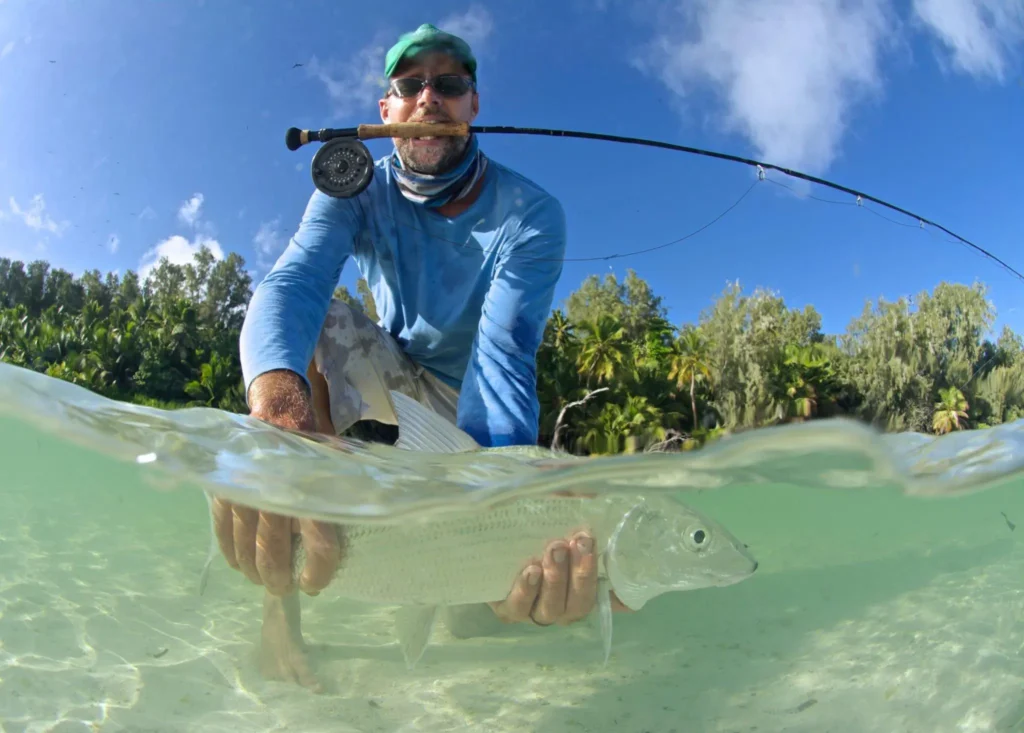
- Catch and release is a fishing practice that involves catching a fish and then releasing it back into the water.
- This method aims to minimize harm to fish by allowing them to return to their natural habitat unharmed.
- It is important to handle the fish with care and use proper techniques to ensure their survival after release.
Barbless Hooks:
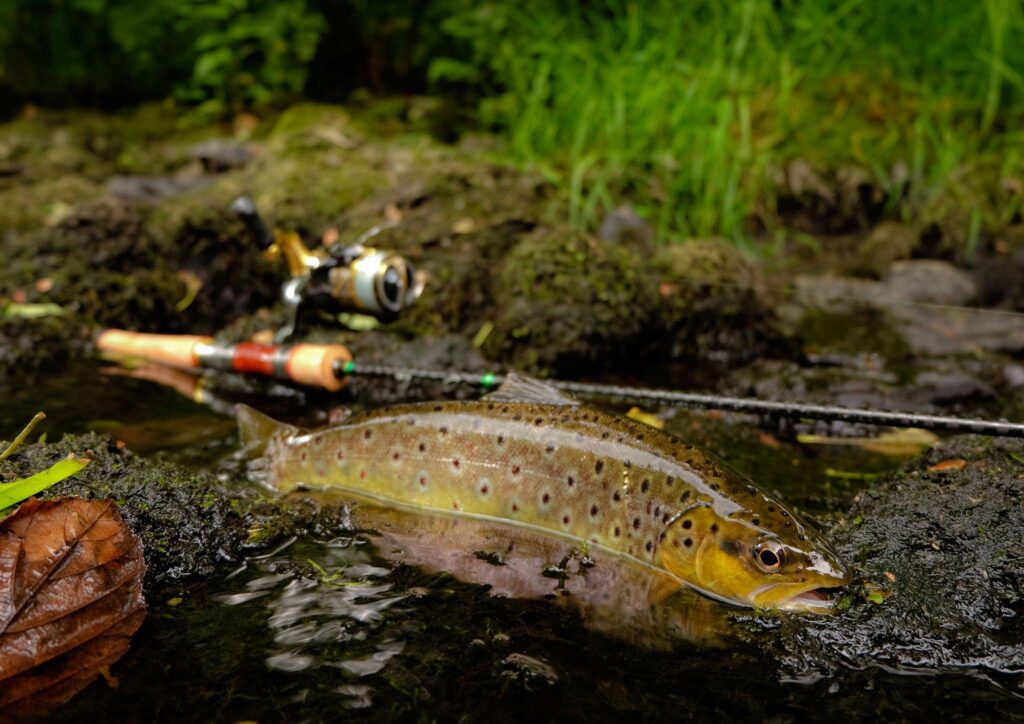
- Using barbless hooks can significantly reduce the harm caused to fish during fishing activities.
- Barbless hooks are easier to remove from a fish’s mouth, reducing the risk of injury and stress.
- This practice is considered more humane as it allows for a quicker and less traumatic release of the fish.
Proper Handling:
- Proper fish handling techniques can play a crucial role in minimizing harm to fish.
- It is important to wet your hands before handling the fish to protect their slimy coating.
- Avoid squeezing or applying excessive pressure to the fish, as this can cause internal injuries.
Single Hook Vs. Treble Hook:
- Using a single hook instead of a treble hook can also reduce the harm caused to fish.
- Treble hooks have multiple points, making them more likely to cause extensive damage.
- Using a single hook decreases the chances of deep hooking and allows for easier removal.
Time Spent Out Of Water:
- The time a fish spends out of water can have a significant impact on its survival.
- It is essential to minimize the time a fish is exposed to air by keeping it in the water as much as possible.
- Taking quick photos or measurements is fine, but prolonged exposure to air should be avoided.
Fishing can potentially harm fish, but there are ways to minimize the impact and practice more humane fishing methods. Catch and release, using barbless hooks, proper handling techniques, opting for single hooks, and minimizing the time spent out of water can all contribute to the well-being and survival of fish.
By implementing these practices, anglers can enjoy their fishing experience while prioritizing the welfare of the fish.
FAQs On Does Fishing Hurt Fish:
Are Fish Harmed When Caught And Released While Fishing?
Fish caught and released during fishing experiences some stress, but if handled properly, the chance of long-term harm is minimal. Using proper techniques like minimizing handling time and using barbless hooks can enhance the fish’s chances of survival after being released back into the water.
Is Catch And Release Fishing Beneficial For Fish Populations?
Catch and release fishing can be beneficial for fish populations as it allows for population management and conservation. By releasing fish back into the water, it increases their chances of reproducing and maintaining healthy stock levels. It helps in preserving fish populations for future generations to enjoy.
What Can Be Done To Maximize The Survival Rate Of Released Fish?
To maximize the survival rate of released fish, it is important to use appropriate fishing techniques. This includes using proper gear to reduce stress on the fish, handling them gently, and releasing them quickly. It’s also essential to wet your hands before handling the fish to protect their sensitive skin and avoid removing their protective slime.
Conclusion
Overall, while fishing is a popular recreational activity enjoyed by millions worldwide, it does have a significant impact on fish populations and their wellbeing. The act of catch and release, practiced by many anglers, aims to minimize harm by returning the fish to the water, but it is not foolproof.
Despite attempts to handle fish gently and use barbless hooks, some injuries can still occur. Additionally, the stress experienced by fish during the catching process can have long-lasting effects on their health and survival rates. On the other hand, sustainable fishing practices and regulations can help mitigate the negative impact of fishing on fish populations.
By implementing catch limits, size restrictions, and protected areas, we can ensure that fish have the opportunity to reproduce and replenish their populations. Ultimately, it is up to us as responsible anglers and stewards of our environment to prioritize conservation and make informed choices to minimize the impact of fishing on fish.
